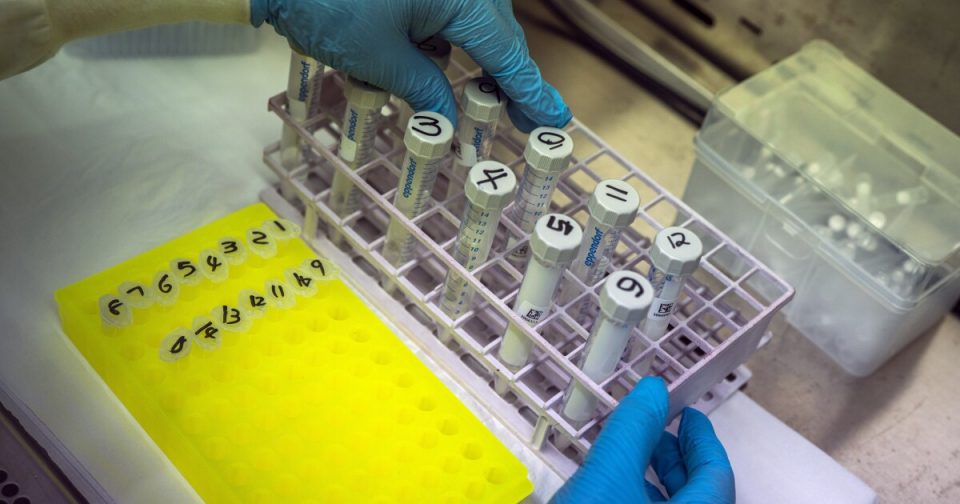On the surface, restricting travel from a specific region where a variant to a life-threatening virus has been detected seems to make sense. It sounds like a swift, precautionary move, made in an effort to slow the spread of that variant. That’s not really the case, according to researchers and other infectious disease and health policy experts, particularly when considering the travel bans placed on southern African countries after the recent detection and reporting of the Omicron variant of COVID-19. These bans have even been called “unfair and punitive” and a kind of “travel apartheid” by the secretary-general of the United Nations.
“It remains disappointing that some countries continue to block direct flights from southern Africa due to the Omicron variant,” Tedros Adhanom Ghebreyesus, director-general of the World Health Organization, tweeted on Dec. 5. “Respect is owed to the science and technology expertise in African countries as well as their transparency and sharing, including data related to the Omicron variant of concern. This is helping to ensure a safer world for all people everywhere.”
One glaring contradiction to barring travel, according to the WHO’s emergencies director, has been countries banning entry from those regions, except for returning citizens when those same citizens could be carrying the variant on the flight home. A better response, policy experts and researchers argue, is to address the inequities in global vaccine distribution in order to prevent the continued development of variants and mutations of the virus.
Godfried Asante is an associate professor of communication, difference and disparities at San Diego State University. His work focuses on the ways social inequalities are sustained, and how health disparities, social injustice, and other forms of social violence and bigotry are normalized. He took some time to discuss the recent travel bans targeting southern Africa and the role vaccine distribution could play in those restrictions. (This interview has been edited for length and clarity. )
Q: Why would this kind of travel ban in this situation be considered “unfair and punitive”?
A: Travel bans tend to not necessarily be effective, especially in a context where the virus tends to travel, and the variants that emerge are already in the United States and other countries before we even detect it. It becomes more political theater, with the idea that governments are doing something immediately to prevent the virus from spreading. In actuality, it’s already here and already spreading.
This affects African countries, in particular, because most African countries rely on transportation and tourism. Part of what these travel bans do is constrict that, creating unnecessary precautions that don’t necessarily translate into actually curbing the spread of the virus.
Q: Since the vaccines were first being widely distributed in more developed and wealthy nations, there’s been criticism about the inequity of how the COVID-19 vaccines are being distributed. Can you talk about vaccine distribution inequity and the repercussions of it?
A: The repercussions of vaccine distribution inequity will lead us to see variants continue to emerge if we allow this virus to spread. Part of the worry here (with regard to vaccine distribution), that I’ve had in the past, is that there was a misconception that the virus was not having a dire effect on the African continent. There were all kinds of stereotypes, and sometimes flat-out misinformation, about the fact that the virus couldn’t take heat. There was the assertion that because the majority of the continent is tropical and/or warm, the virus wasn’t spreading, but that was not the case. There was also other misinformation about the fact that Africans are taking chloroquine because of malaria — with former President Donald Trump referencing that as a treatment against COVID-19 — that led to the misinformed belief that Africans were somehow resistant to the virus.
I think, at the beginning of the pandemic, there was less attention paid to the fact that, perhaps Africans will need enough of the vaccine in order for the virus not to spread, because of these growing misconceptions. Now, we have multiple variants, with one of the first being reported from India, and now South African researchers identifying Omicron. These variants are being attached to the country that identifies them, even though Omicron is not from South Africa [the Netherlands reported finding the variant in samples dating back to Nov. 19, before South Africa first reported finding it on Nov. 24. Nigeria found Omicron in a traveler’s sample retested from October, according to NBC News].
I’m not surprised that there’s a new variant. I think, if we do not extend and provide more vaccine doses to some of these other countries, we will eventually see more variants and we will suffer more, and have to develop new vaccines. If we want to curtail the emergence of new variants, we definitely need to help with greater vaccine distribution.
Q: What kind of role do you think this inequity plays in the travel ban against southern African countries?
A: I think we’re not expanding enough vaccine provisions into parts of Africa. Something like less than 10 percent of African nations are projected to hit their year-end target of fully vaccinating 40 percent of their people [according to the WHO]. That is huge. To not provide the vaccine and also issue a travel ban, is rather punitive. If you provide the vaccines, I think they could have some sort of rationale for these bans. Instead, there is a hoarding of vaccine doses and not distributing them to the world, including the African continent, yet we are putting these travel bans in place, almost to the point of weakening the economy, and potentially creating more variants that could kill people.


